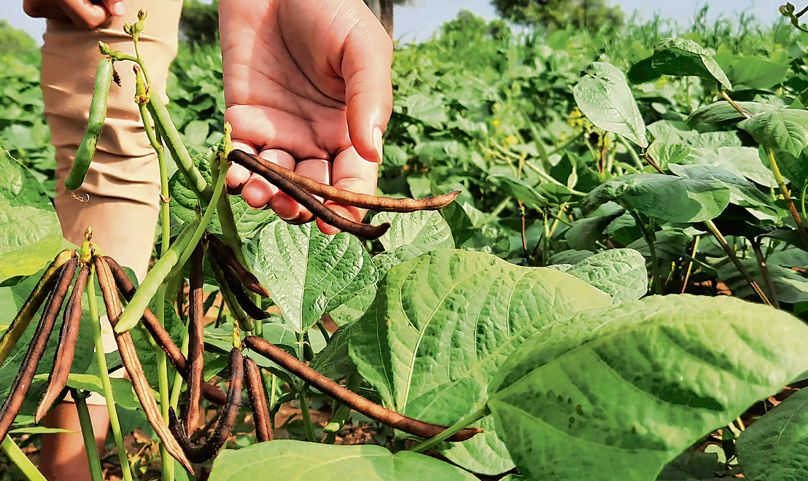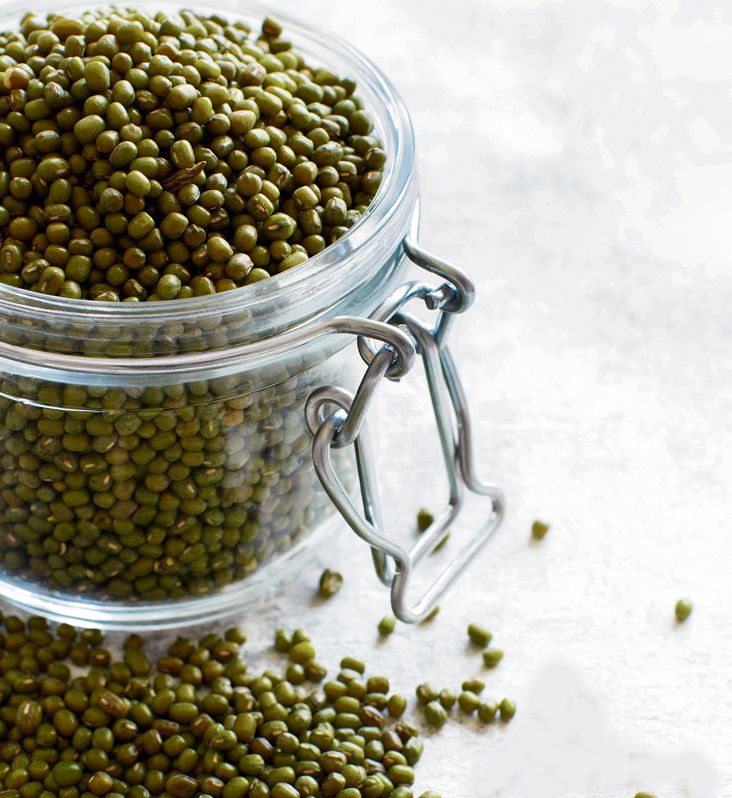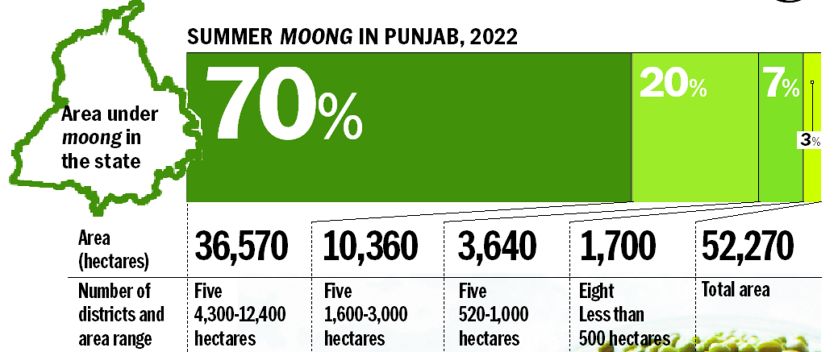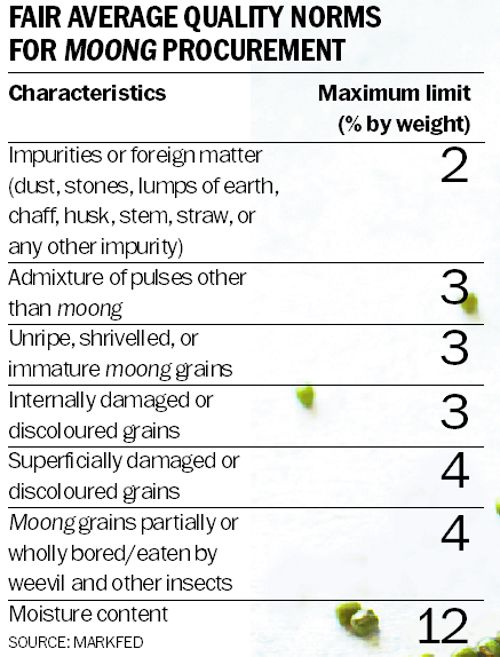
BUILDING on the maiden procurement of summer moong at the minimum support price (MSP) last year, the Punjab Government has allocated Rs 135 crore in the 2023-24 Budget for buying moong and promoting direct seeded rice.
Paul Singh Sidhu
BUILDING on the maiden procurement of summer moong at the minimum support price (MSP) last year, the Punjab Government has allocated Rs 135 crore in the 2023-24 Budget for buying moong and promoting direct seeded rice. For the 2023 rabi marketing season, the Centre has raised moong MSP by 6.6 per cent to Rs 7,755 per quintal. Total moong arrivals in 2022 were 46,329 metric tonnes (MT). Of this, 2,559 and 2,963 MT were procured under the Centre’s amended price support scheme (PSS) for Nafed’s Central pool and the state pool, respectively.
Now that Punjab has a database of over 20,000 moong growers, the state Department of Agriculture and PAU should issue targeted farm advisories emphasising timely sowing, use of quality seed, proper plant population, use of pneumatic planters, avoiding use of defoliants, and harvesting with appropriately modified combines. It is imperative to educate farmers and other stakeholders about procurement modalities and deficiency price payment. Difficulties faced in 2022 need to be addressed to ensure smooth procurement this year.
As expected in any new initiative, some problems were encountered last year. Only 12 per cent farmers received the MSP of Rs 7,275 per quintal. Eighty-eight per cent farmers were paid a lower price, ranging from Rs 4,500 to Rs 7,000/quintal, by private traders. Only 5.5 per cent produce conformed to fair average quality (FAQ) specifications. By relaxing quality norms, another 6.4 per cent was procured for the state pool. Poor quality was due to late sowing, the use of substandard seed, harvesting of unripe crop for transplanting paddy, use of defoliants to hasten maturity, lack of appropriate modification of combine harvesters, inadequate fleshing out of procurement modalities and weak farm advisories. Difficulties encountered in 2022 need to be addressed to ensure smooth procurement this year.

Comparative advantage
Of 52,270 hectares (ha) under moong in 2022 in Punjab, 90 per cent was in 10 districts, mostly in Malwa. Only 10 per cent area was in the remaining 13 districts. Moong should be grown in areas of comparative advantage instead of thinly spreading resources over the entire state.
The major drawback last year was late announcement of moong procurement. Consequently, sowing continued till mid-May, much later than the recommended period from March 20 to April 10. For obtaining a good yield of requisite quality, moong should follow potato, mustard or sugarcane. Requiring five irrigations, moong does not save water, except when it replaces spring maize.
Moong planting after wheat is invariably delayed. Punjab Agricultural University (PAU) should consider the possibility of advancing the sowing time. Late planting often results in discoloured grains and high moisture content due to pre-monsoon showers. Farmers should be advised to plant early by announcing that procurement will not be extended beyond July 31.
Summer moong vs cotton
Summer moong is a two-month crop, sandwiched between rabi and kharif crops. Due to scarcity and poor quality of groundwater, efforts should be made to promote cotton in south-western districts of Fazilka, Sri Muktsar Sahib, Bathinda and Mansa. Cultivation of summer moong in this belt aggravates the risk of a pest attack on cotton and also necessitates its replacement with water-guzzling rice. Policy instruments such as no procurement of moong in conjunction with continuous supply of canal water in April-May and availability of quality cotton seed should be deployed to discourage moong cultivation in these districts.
Now that Punjab has a database of over 20,000 moong growers in 2022, the Department of Agriculture and PAU should issue targeted farm advisories emphasising timely sowing, use of quality seed, proper plant population, use of pneumatic planters, avoiding use of defoliants, and harvesting with appropriately modified combines.
Promising features of procurement under PSS include digital benefit transfer to farmers, direct procurement by Markfed, dispensing with rural development fund and marketing fee, and persisting with FAQ norms and requirement of fard (certified record of actual cultivation) to prevent recycling of trader-purchased moong as farmer-produced. Farmers should be advised to register moong area on the e-mandikaran/Anaj Kharid portal by April 30, 2023. This should be electronically verified as per Zaid-e-Girdawari data of the Revenue Department by May 10. This will help in organising procurement logistics from June 1 to July 31.
Adequate funds should be provided to Markfed for procurement of FAQ specification-compliant moong at the rate of Rs 7,755 per quintal. Farmers selling produce below the MSP can be compensated by paying a deficiency price at the rate of MSP minus actual price received, subject to a maximum of Rs 1,000 per quintal. The required funds need to be provided by the state government to the Punjab Mandi Board for digitally crediting this amount into the farmer’s bank account within five days of delivery to private traders. This deficiency price ceiling of about 12 per cent of MSP will incentivise farmers to improve quality.
It is imperative to educate farmers and other stakeholders about the procurement modalities and deficiency price payment.
The author is former Senior Agriculturist, World Bank (South Asia Region)
Send your feedback to [email protected]
Join Whatsapp Channel of The Tribune for latest updates.



























